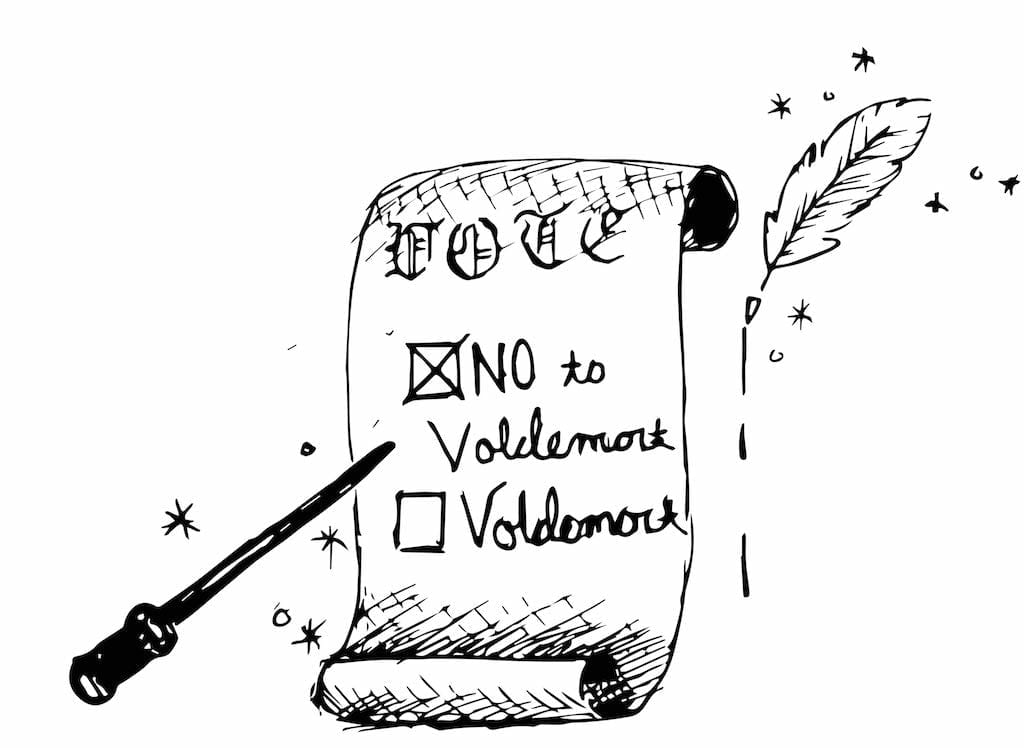On September 1, 1998, a protection charm was placed on America without any of us knowing. It was also the release of the first installment of the Harry Potter series. This spell has had an effect on the minds of millions over the last eighteen years, transfiguring an entire generation of millennials, and consequently, the course of American politics.
In recent months, there have been discussions on foreign influences over the 2016 presidential election. U.S. intelligence officials have formally accused the Kremlin of masterminding the attacks on the DNC servers, while WikiLeaks leader, Julian Assange, continues his calculated release of emails from his asylum in the Ecuadorian embassy in London. But another major player has made their move in this election, intriguing the minds of political scientists across the Muggle world. It is the boy who lived, the boy from under the stairs, the boy who saved the wizarding world from the hands of the Dark Lord.
There is little question of Harry Potter’s impact on American culture over the past eighteen years, with the books selling over 450 million copies, and reaching more people than other series in history. But the conversation on Harry Potter has recently shifted to his political impact on the millennial generation as more research is being published. In a national study conducted by Anthony Gierzynski, a professor at the University of Vermont, he surveyed more than 1,100 college students to see if Harry Potter had influenced the political attitudes of those who came of age with the series. His results found correlations between Potter fans and the support for equality and political tolerance, as well as higher political activism compared to non-fans. Potter fans are also more adverse to the use of torture, racial intolerance, and totalitarianism. During this year’s presidential election, it is easy to see why the ideology of one candidate has captured the negative attention of fans across the country, as comparisons between Donald Trump and Lord Voldemort have made headlines during this 2016 presidential campaign.
The parallels between Donald Trump and Voldemort have not gone unnoticed by scholars, including Diana Mutz, a professor at the University of Pennsylvania. In her study published in the PS: Political Science and Politics, titled “Harry Potter and the Deathly Donald,” she found that Americans who grew up reading Harry Potter were more likely to hold a negative opinion of Donald Trump due to the series’ positive themes of tolerance and opposition to violence. While Voldemort supports pureblood supremacy and eradication of Muggles and mixed-bloods, Trump has pushed nativism ideology and called for a complete shutdown of Muslims entering the country, garnering large KKK and white supremacists support.
“It may simply be too difficult for Harry Potter readers to ignore the similarities between Trump and the power-hungry Voldemort,” Mutz wrote. Even author J.K. Rowling, creator of the Harry Potter phenomena, shared her thoughts on the Trump and Voldemort comparison. She tweeted this statement in a response to a BBC article and Trump’s ban on Muslims:
“How horrible. Voldemort was nowhere near as bad.”
Since Donald Trump entered into the political arena, spewing his vitriol, Rowling has shown no restraint in her use of counter-spells against the presidential candidate. Her opinions have drawn international attention as she commands 8.5 million Twitter followers, and was deemed by Time magazine as one of the most influential people online. Rowling is known to use her celebrity influence and the magic of Harry Potter as political devices to illuminate her views on policy. She cast her view on college affordability by announcing Hogwarts is tuition free. She sparked debate against anti-LGBT supporters by revealing Dumbledore was gay. And while she expressed anti-Trump views since his campaign, she weighed in with for full during these last presidential debates against Hillary Clinton. Minutes after the final debate on October 19, she tweeted this:
“Well, there you have it. A highly intelligent, experienced woman just debated a giant orange Twitter egg. Your move, America.”
